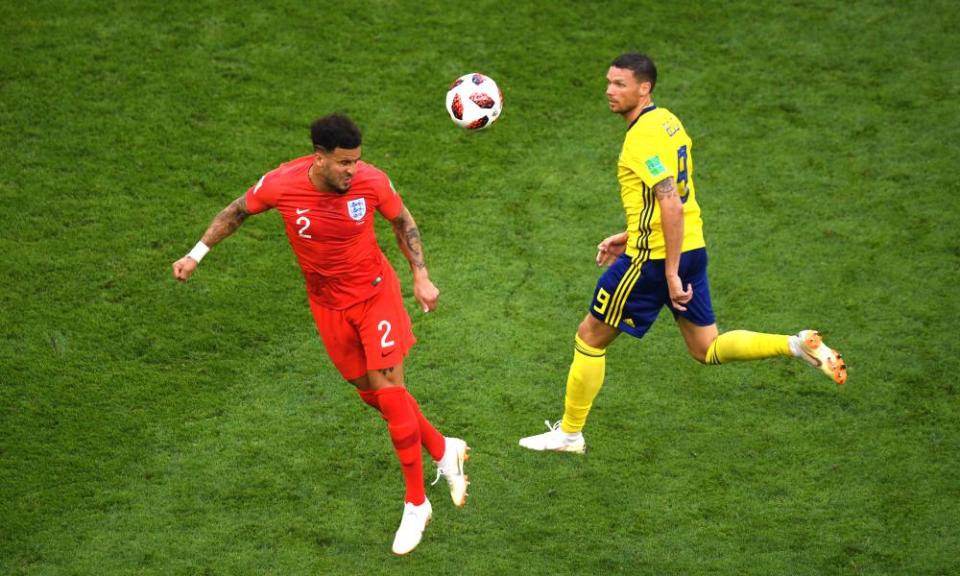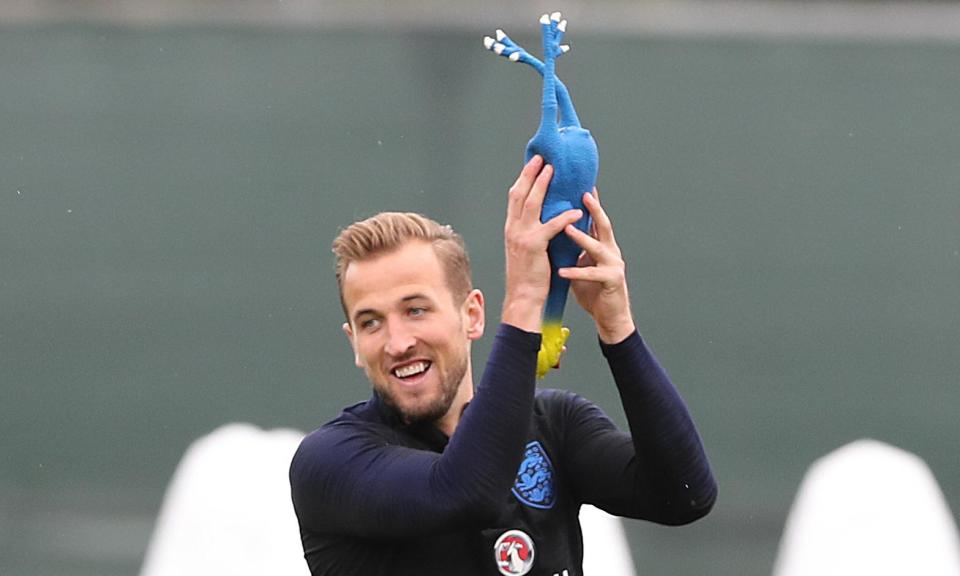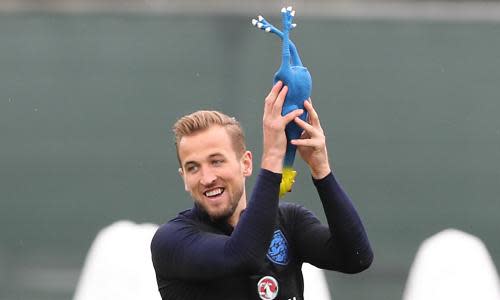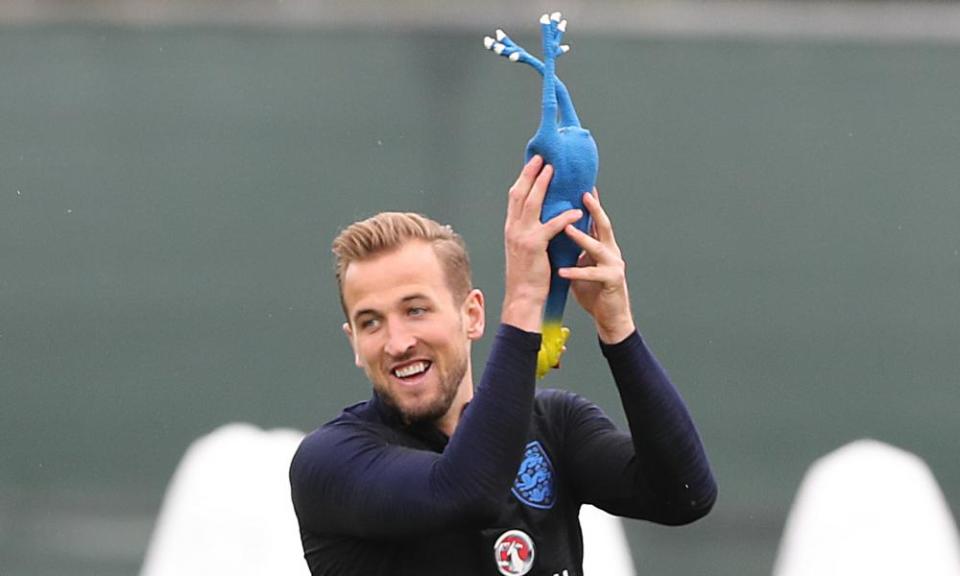England players’ fitness peaking at the right time, says sports scientist
Lions in the winter, lambs in the spring. Until this World Cup the truth of Michel Platini’s decades-old verdict on England’s footballers had continually hardened, like gum left on the pavement. Not this time, though.
Against Colombia Gareth Southgate’s side were pushing forward in the dying embers of extra time, the sniff of glory in their nostrils – and they were the stronger side facing Sweden in the quarter-finals too.
It might come as a surprise that this prowess is not reflected in the sort of physical stats beloved of TV producers. When it comes to average distance run at this World Cup, for instance, England rank 10th according to Fifa while for high-intensity sprints per match they come 15th – good, yes, but not exceptional.
READ MORE: See why Lingard is creative on and off the pitch
READ MORE: SLIDESHOW: England’s Italia 90 semi final team - where are they now?
Yet those inside football say focusing on such numbers misses the point. “Total distance is nonsense, both from a theory perspective and an applied research perspective,” warns Ted Knutson, whose consultancy StatsBomb works with several leading clubs across Europe. “Teams probably run a lot more when they are out of position regularly.”
Knutson’s data also allows him to examine how many times a team pressures an opponent – defined as closing down an opposition player in a way that forces him to make a quick decision. But even here England do not stand out. Belgium’s players have pressed the ball an average of 215.2 times a game during the World Cup; France 201.6; Croatia 175.4. England, meanwhile, are 29th in the World Cup on 153.
But, Knutson points out, England have had the majority of the possession and not been behind – except in that strange semi-friendly against Belgium – so they have had little need to harass opponents continually. Hence those numbers.
Meanwhile John Brewer, who was England’s sports scientist at Italia 90, when they last made a World Cup semi-final, says it is more important to focus on ‘subtler’ signs that show England’s high levels of fitness.
“I remember having conversations with Charles Hughes, who was the Football Association’s director of coaching back then, and very much about high-tempo football,” recalls Brewer, who was one of six backroom staff Bobby Robson could call on. “He was obsessed with sprint intensity and fitness. But I would endlessly say to him it’s not just about running around like headless chickens. It’s about having the fitness to implement your game plan, recover between matches and sustain your level over multiple games. And that is what we are seeing with this England team.”

Brewer also believes Southgate made the right decision in giving his players a break after the season, as well as resting most of his first choice XI against Belgium to help them recover for the knockout stages. “The more subtle indicators of fitness are also evident with Southgate’s England,” says Brewer, a Pro Vice-Chancellor at St Mary’s University. “You see it in the way players can sustain their coordination, touch and cognitive decision-making over 90 or 120 minutes – because when people are tired those abilities tend to plummet.
“You could even argue that in previous tournaments with England that it was sometimes fatigue that played a part with missing crucial penalties.”
Despite England going out to West Germany on spot-kicks in Italia 90, Brewer recalls the tournament with pride and speaks highly of the players and Robson. But things, he stresses, were very different back then.
“Players used to love eating steaks before matches, which was clearly not ideal,” he says. “I tried to implement a culture shift in favour of more carbohydrates to give them the energy they needed, with a certain amount of protein too. But one time the England doctor, John Crane, brought out a big trolley load of steaks and announced: ‘You have got to give the boys what they want.’ But Bobby Robson’s reaction was: ‘No, you haven’t. You have to give them what they need.’
“There were issues with alcohol too,” he adds. “We had a ban on booze from two weeks before Italia 90 but what Bob did a couple of times was allow them to break the curfew with a drink or two of wine or champagne. But unfortunately there were situations where some players drank far more and that caused a couple of issues.
“However the players who had played in Europe already, such as Gary Lineker, Trevor Steven and Chris Waddle, got it. I remember Chris saying to me that what I had been doing with diet and preparation was totally accepted in Europe and that we were still lagging behind other countries. You can’t say that any more.”
The players have done wonderfully well but there is a risk of burnout if they, and their clubs, are not careful
It would be ironic, of course, if England made the World Cup final in the year the Premier League finally agreed to have a winter break. But Brewer still thinks it is worth implementing – providing players are able to rest rather than go off on a lucrative tour to the Far East in January.
He is supported by Luis Suárez, who in his autobiography writes that it is not the number of games in English football that is the problem but their intensity. After arguing for a 15- to 20-day winter break, he wrote: “If you compare the intensity of the Bundesliga, La Liga and the Premier League you can see that the English league’s harder.”
Perhaps on occasion, though, the lack of break has been used as a crutch to explain poor England performances. Raheem Sterling, Kyle Walker, Dele Alli and Jordan Henderson played substantially more minutes this season than they did before Euro 2016 – and all appear to be thriving in Russia.
Meanwhile, whatever happens in the coming days, Brewer urges clubs to be sensible when England eventually come home. “The players have done wonderfully well,” he says, “but they have been on the go for nearly 12 months. They are playing in some of the most highly pressurised games in their careers. There is a risk of burnout if they, and their clubs, are not careful.”




